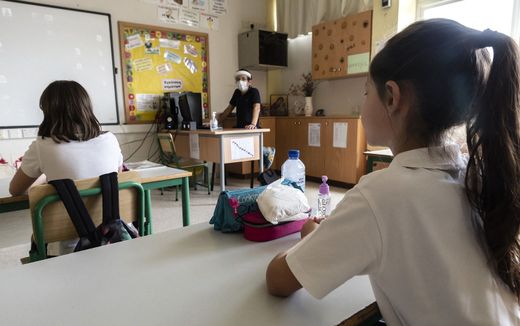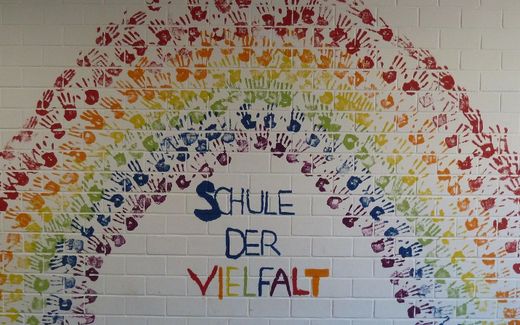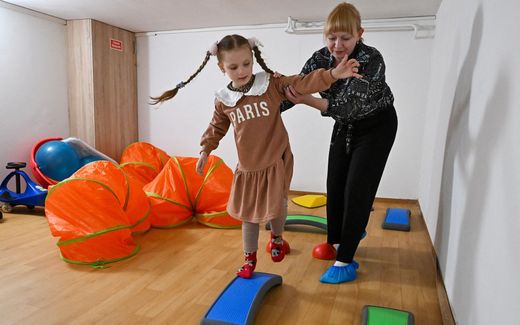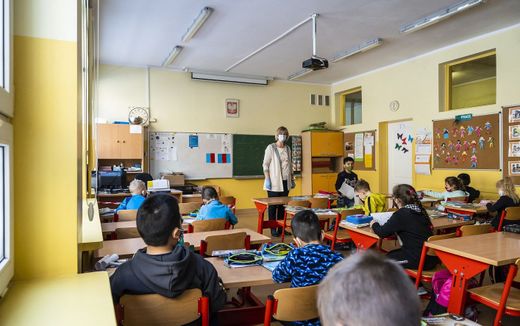Comment: Parents could draw lessons from upheaval about sexual education

Author Fajah Lourens with the book she wrote for sexual education. Photo ANP, Evert Elzinga
Opinion
In more and more countries, sexual education gets increasingly emphasised. At the same time, there is a growing criticism about the way the lessons are taught. There are important lessons for Christian parents to learn from all of this.
Several countries draw attention to sexual education by organising a national week in which schools are encouraged to pay attention to the topic. However, wherever that happens, there is upheaval to some extent. We have seen that in Norway in January, and last year, there was much upheaval in the Netherlands. Parents worry that their children are shown pornographic images or learn at school about masturbation and gender identity – the idea that there are many different genders and that you can change your gender.
Sexual education in Europe
In several countries, schools dedicate a period of time to teach children about sexuality, relationships and reproductive biology. This week, for example, is the Week of Spring Fever in the Netherlands. There are several lesson plans from which schools can choose to deal with the sensitive subjects and the difficult questions that students may have about sexuality.
Also in Norway, Belgium and Spain, sexual education is put on the agenda. In Norway, what is known as “Week Six” took place in February. The same applies to Denmark. Some countries, such as the Netherlands, Germany and Norway oblige schools to teach about sexuality.
Especially Christian parents are concerned about the national programmes for sexual education that are implemented at schools throughout the country. They fear that their children will be confronted with LGBT ideas about gender and sexuality.
Gender
The concerns are real and justified in many cases. Many of the national programmes promote the idea that children can have a different gender than male or female and argue that non-hetero relationships are (biologically and ethically) equal to the relationship between a man and a woman. For example, one of the Dutch methods, described by the Dutch newspaper NRC for sexual education encourages teachers not to refer to the children as boys and girls but find more neutral terms. In addition, the method suggests that children as young as six years old can already be taught that some people are neither male nor female.
After all, secular lessons forget one crucial aspect of sexual education, namely that it should be founded in the norms and values that God Himself given for sexuality. As Christians, we receive the human order of male and female as a reality. We also believe in values as mutual respect, boundaries and consent, but we do so because we believe that every human being has a priceless value as being created in God's image. Therefore, other human beings do not exist to satisfy our sexual lusts and desires. Neither should we base our sexual morality on our sinful feelings that have been corrupted since our fall in Paradise.
Sexual education from a Christian perspective
There are also Christian programmes for sexual education at primary and secondary schools. For example, the Dutch method “Wonderlijk gemaakt” (Wonderfully made), which is an approved programme in the Netherlands, has also been translated into several other languages, among which Ukrainian, German and French.
The programme is developed by the Dutch Driestar Christian University for Teacher Education and takes the Bible as starting point for sexual education. Therefore, it is based on the idea that we are all created beautifully by God in His image and that “intimacy and sexuality are gifts from our Creator”. Biblical norms and values are central to the method that addresses relationships, sex, and the development of protective behaviours. Parents are closely involved in the lessons and kept informed about the content.
Yet, parents should do good to not only criticise the secular sexual education curriculums, but also use them to reflect on themselves. The reason why national governments feel the need to oblige schools to provide sexual education has to say something. According to the Dutch expert centre for sexuality, Rutgers, parents do not talk about these topics at home sufficiently, leaving children clueless when they encounter sexuality online or in other places in society.
Brothel
Teaching children and young people about sexuality is not superfluous, research shows. Reports about sexual abuse, pornography addiction and sextortion show concerning trends, also among children and teenagers. The internet is a brothel with open access for children, CNE columnist Edit noted in an earlier column. The Norwegian newspaper Dagen even links watching pornography to the increase in rapes in sexual abuse. And other research shows that children who watch porn regularly, are more likely to develop an addiction than adults who do.
The consequences of this are severely harmful for our youth. Not only do they grow up with unrealistic expectations and views on sexuality, but they must also deal with the psychological damage that sexualisation and abuse cause.
Resilience is therefore an important characteristic in the digital world in which the youngest generations grow up. They need to know what is okay and what is not, also when it comes to sexuality. They must know what to do if they come across graphic images or if someone attempts to sexually assault them. They need to learn how to say no when their boundaries are violated. And that is where sexual education comes into play.
Openness
Therefore, parents are called to more than criticising schools for not teaching their children correctly. Instead, their first duty is to create a safe environment where their children feel an openness to talk about sexuality and relationships, where they dare to ask their questions. Parents, as the ones who are first and foremost responsible for the education of their children should take up this task and grab the chance to teach their children how beautiful sexuality and relationships are, because God created them to mirror the close relationship between Himself and His Church.
Related Articles











